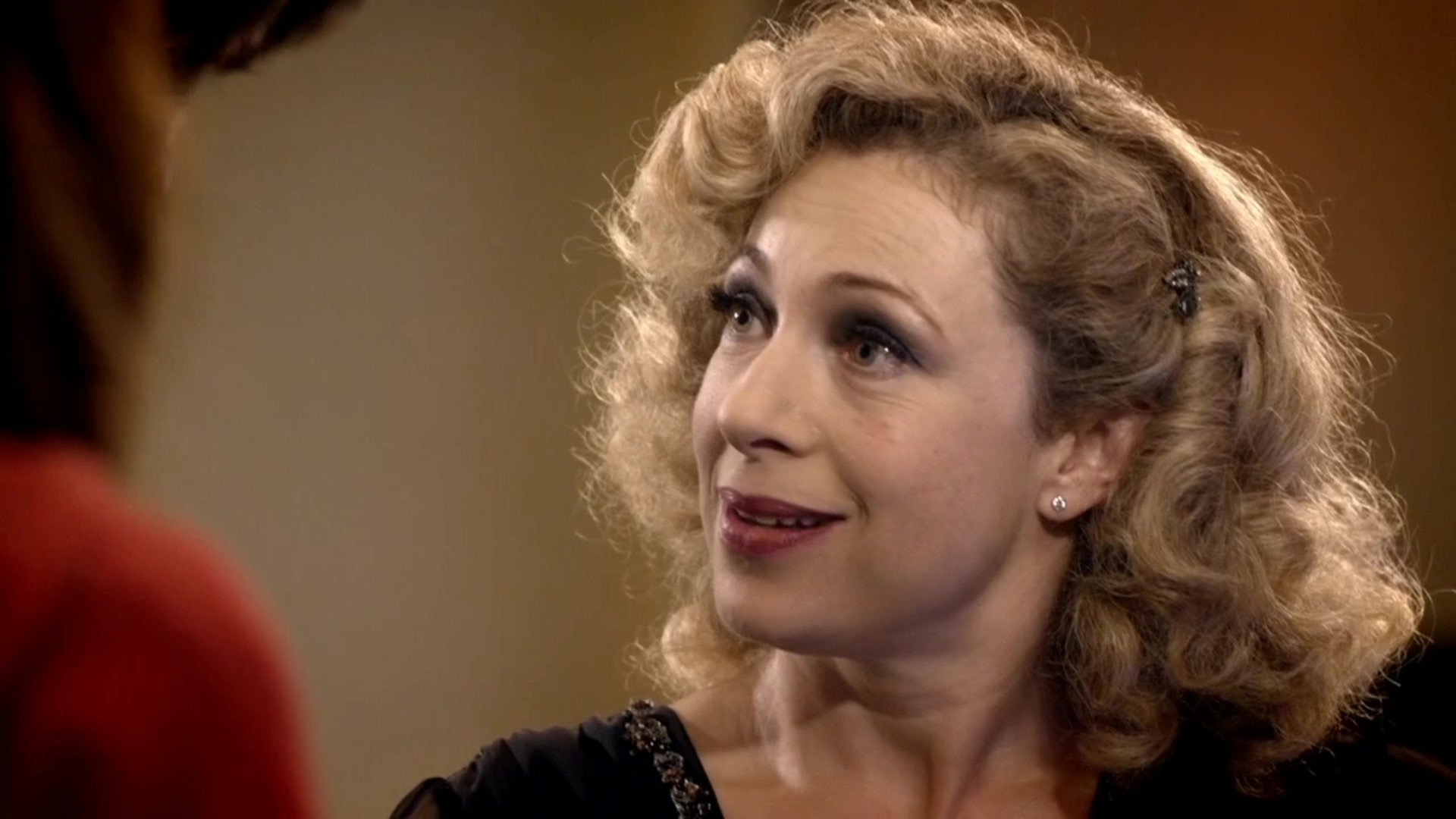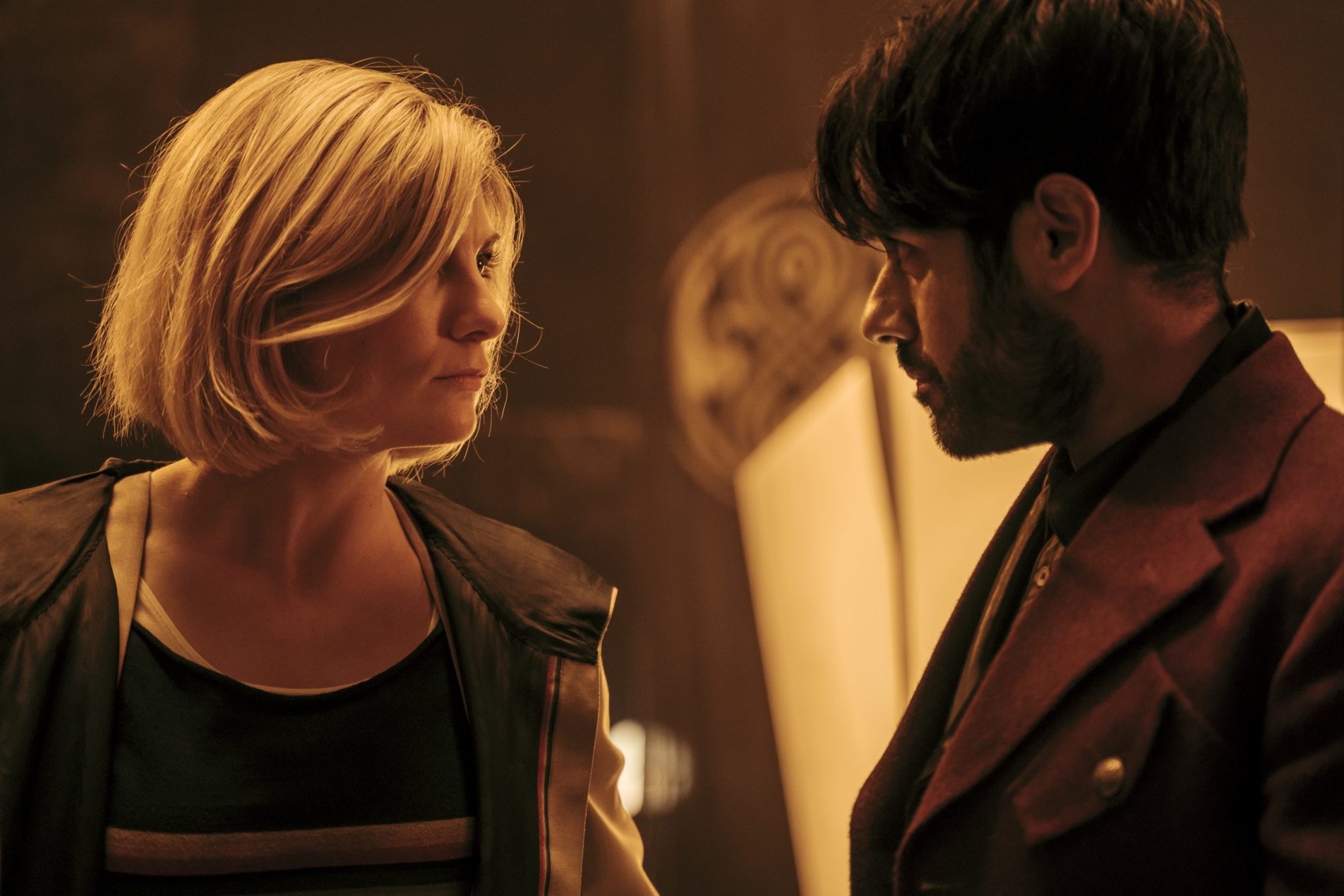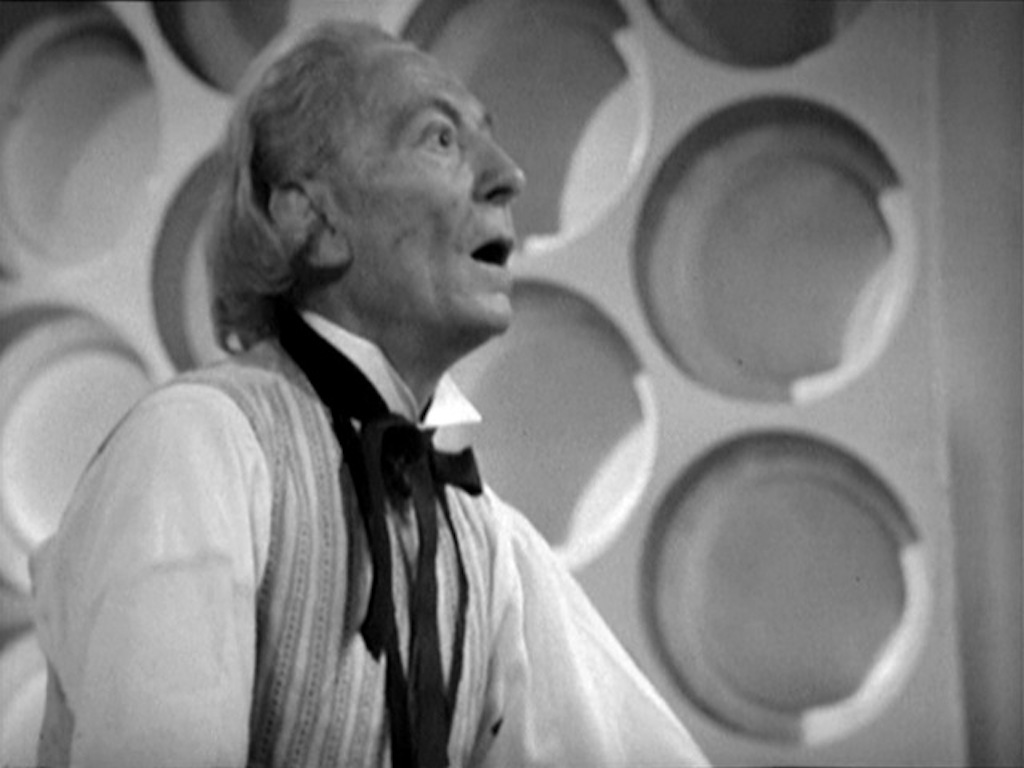You can’t rewrite history, except for when time can be rewritten! Doctor Who stories have always had a hard time keeping up with each other, and deciding what’s ‘canon’ isn’t easy. In this post, we take a light-hearted look at the episodes which left some fans scratching their heads…
“It’s not supposed to make that noise…”

The sound of the TARDIS engines has varied after 60 years of materialisations. But many Doctor Who stories have taken different views on how these engines should sound – or whether they should even be heard at all.
The debate stems from a comment River Song made in ‘The Time of Angels,’ when the Doctor noted that she managed to land the TARDIS without its famous engine noise. River rebutted him, telling him that the TARDIS wasn’t supposed to make that noise. Rather, it was the sound of the Doctor leaving the brakes on.
It made for a good joke, but it did throw Doctor Who canon into a bit of a frenzy. On the one hand, there had been many Doctor Who stories where the TARDIS had materialised without a sound, most of which were during John Nathan-Turner‘s time as producer; he felt that the TARDIS’ materialisation noise got in the way of dialogue, so he concluded that the sound should only be heard outside the ship.
But if River’s claim is true, it wouldn’t quite explain why the Master‘s TARDIS made the classic sound when arriving / departing, unless he too was silly enough to leave the brakes on…
“I’m half human, on my mother’s side…”

One of the most canon-melting Doctor Who stories was the 1996 TV movie, in which the Doctor claimed he was half human on his mother’s side – a claim that was backed up by the Master when he looked in the Eye of Harmony. So is the Doctor really half human?
It’s hard to tell. Certainly, the Eighth Doctor‘s claim would seem to be contradicted by the Tenth Doctor in ‘Journey’s End,’ who told Donna that “there has never been a human-Time Lord metacrisis before now.” In the episode, his companion had become half human and half Time Lord after making contact with the Doctor’s regenerating spare hand. As you do.
The effect almost killed her, hence why the Doctor insisted that a human-Time Lord metacrisis couldn’t happen. Moreover, the Doctor who grew out of the spare hand claimed to be half human, which implied that the Tenth Doctor wasn’t. Aargh.
Of course, we know very little about the Time Lord’s backstory (the clue’s in the name of the show) but there have been some Doctor Who stories which have taken a closer look at their origins. Which brings us nearly onto…
“A little piece of you is in me…”
One of the most canon-shifting Doctor Who stories of all time is 2020’s ‘The Timeless Children,’ in which it was revealed that the Doctor had lived countless forgotten lives, and that the Time Lords had obtained their regenerative abilities from the Doctor. “A little piece of you is in me,” said the Master. “All I am is somehow because of you, and believe me when I say, I cannot bear that.”
On the one hand, there are some earlier Doctor Who stories which would seem to add weight to the Master’s claim. The most obvious example is ‘The Brain of Morbius,’ in which the faces of unknown Time Lords are shown when the Doctor and Morbius lock minds – faces that could have belonged to either the Doctor or the rival Time Lord.

But one of the Doctor Who stories that provides the most obvious contradiction to this idea is ‘The Name of the Doctor,’ where Clara Oswald enters the Doctor’s time stream and claims to have encountered all of his past lives. “I saw all of you,” she said. “Eleven faces, all of them you. You’re the Eleventh Doctor.”
So, in theory, Clara should also have seen the Fugitive Doctor and all the other ‘forgotten’ incarnations, if the Doctor had indeed begun life as a little girl standing outside the gateway to another dimension. It would also make the idea that the Doctor was half human seem less likely.
There is a caveat, though. Clara didn’t see the War Doctor when she was in the Doctor’s time stream (at least, not initially) as he had been hidden from her. So could the other incarnations have been hidden too?
“The doors opened before we properly materialised!”
Over the years, many Doctor Who stories have taken different views on the mechanics of the TARDIS doors (pivotal stuff, we know.) And in the 1964 adventure ‘Planet of Giants,’ the First Doctor got into a bit of a flap because the doors opened by themselves before the TARDIS had fully materialised – a dangerous situation by all accounts.

Indeed, the situation proved so dicey that the Time Lord and his companions were reduced to the size of ants as a result. Opening the TARDIS doors, it would seem, is not something to be taken lightly.
And yet in the Doctor Who stories that followed, the Time Lord seemed to take a much more liberal view about this. In episodes such as ‘The Beast Below’ and even the more recent ‘The Power of the Doctor,’ the Doctor was quite happy to open the TARDIS doors while the ship was in flight, even going so far as to sit on the police box’s roof. In fact, during the New Who era, opening the TARDIS doors became a standard way of checking what was outside the ship.
This reckless behaviour would seem to contradict other Doctor Who stories like ‘The Enemy of the World’ when the Doctor and his companions are almost sucked out when the doors open mid-flight. So what’s going on?
The in-universe explanation would be that the New Who Doctor never opened the TARDIS doors while the ship was materialising or travelling through the time vortex, leaving enough wiggle room for ‘The Enemy of the World’ and ‘Planet of Giants.’
But if in doubt, dear reader – do not open the TARDIS doors until you have landed.
How do you explain the apparent contradictions from the above Doctor Who stories? And which other ‘continuity errors’ would you add to the list? (And can time really be rewritten, or is it impossible to change a single line…?) Let me know in the comments below.









The New Who ones did have the TARDIS in a position that could count as landed. Obviously it’s not landed in the traditional sense of the word, like a plane landing on the ground, but the TARDIS flies therough to Time Vortex, so landing would count as when it is situated in a position within space-time. So the comparison could be drawn to if the doors were opened when Jack was hanging on to the front of the TARDIS through the Time Vortex.
Didn’t the First Doctor only have one heart?
I don’t recall any mention of the Doctor’s heart(s) prior to “Spearhead from Space” (Jon Pertwee’s first story).
Do you recall what story & episode it was mentioned in?